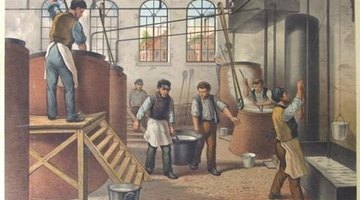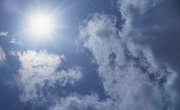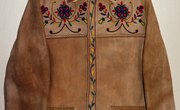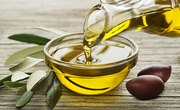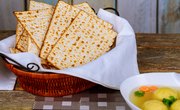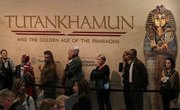Lye soap as made in early America was used for nearly every cleaning purpose from laundry to shampoo. Medicinally it was considered a cure for many common skin ailments, including poison ivy and mosquito bites. Called "the Appalachian cure-all," lye soap today is a milder cleanser but keeps its reputation as stain remover, skin treatment and even catfish bait. Many of the more unusual claims have not been scientifically proven.
Old Soap
Originally lye soap was made from animal fat, wood ashes and water. Water poured through wood ashes leached lye from the ash, and the lye was boiled in a vat with animal fat. The process took as long as 24 hours and required an experienced soap maker who could test and adjust the mix properly. When the mix was right, the soap was poured into a form, cooled and cut into bars. Too much lye made a soap that burned skin and damaged fabrics, while too little lye prevented the soap from hardening.
Modern Soap
Today's homemade lye soap may contain some vegetable oils, which help create lather, and may have fragrances added. Part of the attraction of homemade lye soap is the lack of unnecessary additives, which some people find irritating to the skin. Lye soap contains a small amount of glycerin, which would be removed from a commercial product, and soap makers believe the glycerin accounts for many of the healing claims regarding this cleanser.
Cleaning
Bars of lye soap rubbed vigorously on problem fabric stains are said to be effective stain removers. Shaved or flaked, lye soap makes a good laundry detergent. For bathing and hand washing, lye soap is as effective as any commercial bar soap. Sanitizing properties are equal to those of manufactured cleansers. Batches are variable, and not everyone will find lye soap a comfortable product for personal hygiene.
Medicine
Medicinal claims that lye soap will cure psoriasis, dandruff, head lice and a host of other common skin problems and infestations may be partly true. Old recipes retained some caustic lye in the final product, which acted as a rough antiseptic. The small amounts of glycerin helped to soothe the resulting skin irritation. Lye soap, and any other soap, is an effective treatment for poison ivy--if used soon after exposure, the soap will wash away the oil that causes the allergic reaction and blisters.
Unusual Claims
The claim that washing with lye soap improves hunting luck is actually true. Unscented lye soap removes odors from skin and clothing and does not replace human scents with artificial fragrances. Clean hunters aren't detectable downwind. Insects are said to be repelled by lye soap and its residue, whether on the skin or on objects. A bar of soap strategically placed is purported to be an effective ant repellent. Such claims are unproven but can be tested without risk.
Related Articles
Writer Bio
James Young began writing in 1969 as a military journalist combat correspondent in Vietnam. Young's articles have been published in "Tai Chi Magazine," "Seattle Post-Intelligencer," Sonar 4 ezine, "Stars & Stripes" and "Fine Woodworking." He has worked as a foundryman, woodturner, electronics technician, herb farmer and woodcarver. Young graduated from North Seattle Community College with an associate degree in applied science and electronic technology.

